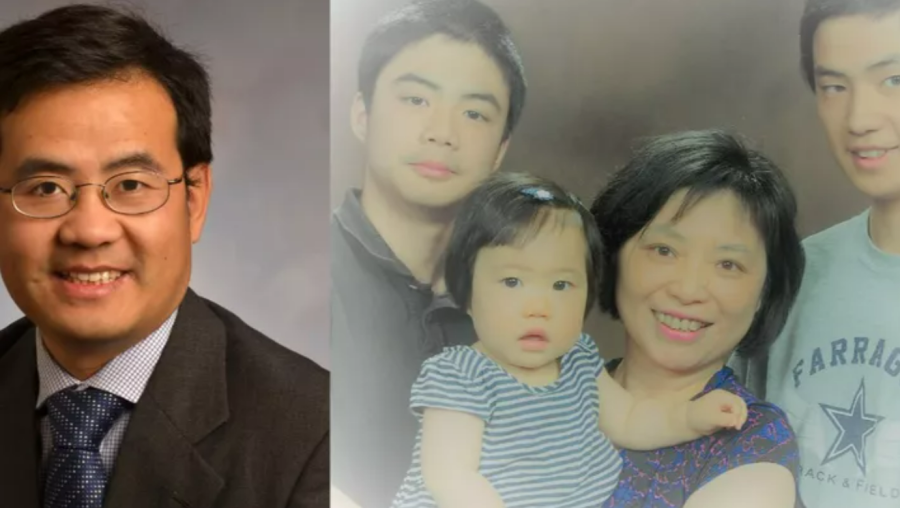‘The China Initiative’ is not justice
The China Initiative has become a witch hunt, rather than meeting goals
In November 2018, the U.S. Department of Justice (DOJ) and the Trump administration announced the China Initiative, a law intended to crack down on intellectual property crimes, such as economic espionage and trade secret theft, linked to the People’s Republic of China.
These goals seem reasonable – if pursued in an informed and evidence-based manner. Yet, last September, 177 Stanford faculty members sent an open letter to Attorney General Merrick B. Garland, citing three concerns with the Initiative: that it disproportionately targets researchers of Chinese origin; has led to few actual prosecutions relating to espionage; and that it is harming U.S. science and technology enterprise. Since the letter was sent, a significant number of faculty members at UC Berkeley, Temple University, Princeton University, and the University of Michigan have endorsed it, and Garland has promised to review the act.
So far, there’s little evidence that intellectual property theft by Chinese scientists is a recurring issue. In Feb. 2020, FBI Director Christopher A. Wray said that the bureau had 2,000 open cases of economic espionage with ties to the Chinese government. Yet, as of September 2021, three years after the Initiative began, only 12 prosecutions have been made public, of which four have ended in convictions, according to Justice Department statistics provided to the Los Angeles Times.
Michael German, a former FBI agent and fellow for the Brennan Center for Justice’s Liberty & National Security Program, said in an interview, “Even FBI analysts appear to have felt the investigators’ effort to connect these defendants to the Chinese military was overwrought.”
90% of defendants indicted under the act are of Chinese heritage, according to December 2021 statistics from the MIT Technology Review, which raises questions of whether the FBI is specifically and wrongly targeting Chinese researchers and academics.
What to make of this? I believe the Initiative is a xenophobic campaign that contributes to a culture of racism against Asians in America.
The China Initiative has cracked down on academics receiving Chinese government grants, one of which is the Thousand Talents recruitment program. But the Thousand Talents program, which has existed since 2008, is not uncommon. Professors rely on foreign grants to fund their research, and many choose to work overseas on international grants.
“When you get above a postdoc level, everybody applies to every country in the world. People are crossing borders all the time, and eventually congregate where there is the most money. China is now pouring huge amounts of money for research. It’s only because it’s from China that everybody has this kind of [negative] opinion of it,” said Tim Byrnes, an associate professor at New York University’s campus in Shanghai and a 2016 Thousand Talents grantee, in an interview in the New York Times. Byrnes maintains that he has never been asked to submit reports directly to the Chinese government, and that all his research is published in academic journals and thus in the public domain.
A majority of the targets of the Initiative are Chinese American professors or scientists in the private sector. After initial arrests, many professors were placed on leave or suspended by their universities, leaving them and their families in dire financial straits. One such professor was Anming Hu, an associate professor at the University of Tennessee, Knoxville. Hu had his tenure terminated, nullifying his long-term contract to teach at the university.
Hu was originally charged with three counts of wire fraud and three counts of making false statements, in particular, for failing to disclose his association with a Chinese university in a NASA patent. He was acquitted on Sep. 9, 2021 and cleared of all charges.
The FBI’s conduct in Hu’s case has caused controversy due to the government intentionally building a case on Hu with the inclusion of false evidence, and attempting to recruit Hu to spy for the United States, as testified in court by FBI agent Kujtim Sadiku. Sadiku also falsely led Hu’s university to believe he was a Chinese spy, resulting in his layoff. The case additionally lacked evidence to support claims of economic espionage, despite a team of FBI agents following Hu for 21 months.
“My heart breaks for my children and the long-term harm this will have on them,” Hu’s wife wrote publicly. “How can I explain this [to] them? How can they process and understand the injustice that their father is facing? How can I address the trauma they are experiencing?”
Other examples of questionable FBI conduct in Initiative cases include: Juan Tang, whose Miranda rights were violated and therefore charges of lying to the FBI were dropped; Haizhou Hu, who had permission to access documents he was accused by the bureau of stealing from his professor; Lei Guan, who was accused of destroying evidence, but after a DNA analysis of a flash drive came back inconclusive, the case was dropped.
For many immigrant families, coming to America is their chance to escape the oppressive governments of their home countries, giving them the ability to reside in a country driven by freedom, justice, and democratic ideals. This “American dream,” along with the “hard work pays off” promise of capitalism, has attracted millions of Asian immigrants to the U.S. in recent years.
Even with U.S. animosity toward China, the China Initiative is a fearful response to a foreign threat that has not accomplished its objectives. Instead, it has too often ruined the lives of innocent people.
For updates and more information on the China Initiative, please visit APA Justice’s website.







































